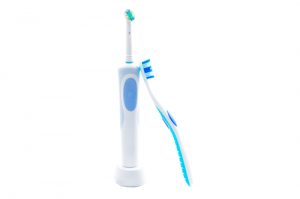Dental cleaning is a comprehensive list of processes to clean your teeth and oral system. it includes a thorough examination of your oral system and removing unwanted dirt and waste from your teeth. It also takes care to prevent tooth decay and other oral diseases.
The following section provides you a brief overview of professional dental cleanings and its benefits. You will also know what to expect when you visit for a dental cleaning.
-
What is a dental cleaning?
Dental cleaning is a preventive process to remove dental plaque and tartar to protect your teeth from decay and dental diseases. A dentist or dental hygienist who has a complete know-how of the teeth, oral system, and preventive care performs the dental cleaning.
To maintain good oral hygiene, it is recommended that you practice regular care of your teeth to avoid any discomfort. Neglecting your oral hygiene may lead to damaging your teeth, oral system, and your health.
Dental cleaning consists of diagnostic, preventive and counseling services. Dental cleaning involves diagnostic services to examine your teeth and the oral system. It screens and checks for cancer, tooth decay, issues and also evaluates the gum tissue.
 Preventive services involve cleaning, removing plaque and tartar, fixing cavities and cracks. It also includes preventive medication and polishing your teeth. Preventive services clean your teeth and oral system and prevent them from further damages.
Preventive services involve cleaning, removing plaque and tartar, fixing cavities and cracks. It also includes preventive medication and polishing your teeth. Preventive services clean your teeth and oral system and prevent them from further damages.
Teeth cleaning ends with counseling services with suggestions for effective oral self-care. It includes counseling for nutrition, best practices and the diet or activities that need to be taken or avoided.
-
Benefits of the dental cleaning
Professional dental cleaning not only keeps your smile bright but also impacts your oral system and general health. A few benefits of professional dental cleaning include,
Oral hygiene with a bright smile
Your dentist removes most of the stains and tartar, clean your teeth and keeps your smile bright and white. Teeth cleaning also helps to maintain good oral hygiene and prevent any issues from occurring again.
Prevents gum diseases
Regular dental cleaning can make your gums strong and prevent gum diseases. A strong gum firmly grips your teeth and prevents teeth loss.
Prevents and cures oral cancer
Many of the oral cancers can be cured if they are detected early. A dental cleaning helps you to detect any signs of oral cancer in the early stages and initiate the required steps to diagnose and cure it in time.
Prevents cardiovascular and other diseases
Many of the cardiovascular diseases, diabetes, Alzheimer’s and infertility are related to oral health. When you get your teeth cleaned twice a year, it helps you maintain a hygiene oral system and a strong teeth gum. This also helps to significantly prevent these diseases.
Fixes cavities and fractures
Your newport news va dentist can easily identify signs of broken teeth and cavities. He fills the cavities and fixes cracks in your teeth in the early stages to prevent your teeth from further damages. It also prevents costly dental treatments down the line.
It helps to maintain fresh breath
Dental cleaning helps you to maintain fresh breath that makes you feel comfortable and boost your confidence. It also helps you to avoid embarrassment and freely express your opinions.
-
What to expect in a dental cleaning?
A dental cleaning is a painless and safe process with occasional minor discomfort. The duration and processes in it can vary from person to person depending upon the condition of your teeth. You need to know the exact processes in teeth cleaning to help you prepare for a dental visit and ease your stress.
Physical examination
Most dental cleaning starts with a physical examination of your teeth. Before starting a dental cleaning, your dentist examines your entire oral system and gums. Your dentist checks for any existing issues and potential problems. It determines the further steps and customizes the treatments accordingly.
Medical history review
Your current health condition and medication impact the health of your teeth and oral system. Your dentist examines your current health condition to treat your teeth and gums better.
Periodontal evaluation
During the periodontal evaluation, your dentist or dental hygienist examines your gum for any gum diseases. We check for depth of the gum pockets, bleeding sites and also diagnose bone loss through digital x rays.
Occlusion test
An occlusion test helps to determine the shifting of your teeth from its normal position. Sever shifting of your teeth impacts the way you bite, chew and swallow your food. A significant shifting of teeth needs to be treated by an orthodontist to fix the issues.
Oral cancer screening
Screening and examining your teeth for oral cancer is an essential part of every dental cleaning. Early detection of oral cancer helps to easily be cured cancer than treatment at a later stage.
Dental scaling
The dental hygienist removes plaque and tartar around your gum line using a scalar. They are scraped from your teeth physically and you can hear is scrapping sound during scraping.
After your teeth are free of plaque and tartar, the hygienist brushes it using an electric power brush. It removes the remaining tartar that is hard to reach using a scalar.
Teeth polishing
Teeth Polishing is a painless process that leaves your teeth bright and shiny. it removes stains, plaque, and microorganisms from the surface of the teeth.
Dental filling
The dentist cleans away the decaying teeth using a drill and fills the cavity caused by tooth decay. The dentist molds the filling to match the shape with adjacent teeth to cover up the cavity.
Deep cleaning
Deep cleaning is also known as scaling and root planing. It includes cleaning of the outer surface of the roots and below the gum line. Deep cleaning is needed when the tartar has infected your gums.
Flossing
During dental floss, a thin chord of filament is used to remove food and plaque stuck between the teeth. These food particles get stuck in areas that are hard to reach with a toothbrush.
Treating with fluoride
Fluoride treatment is the last step in the cleaning process. It protects your teeth and fights against cavities for several months after the dental cleaning. Fluoride forms a foamy gel in your mouth which strengthens the enamel of your teeth by forming a hard layer on it.
Antibiotic prophylaxis
Antibiotic prophylaxis is a premedication for a dental cleaning. Taking antibiotics before teeth cleaning prevents your teeth and gums from infection due to germs and bacteria.
Nutrition counseling
Your dentist advises the diet and nutrition for healthy teeth and gums. He examines your current nutrition habits and ensures to keep your oral system strong and healthy.
He also educates you on best practices, brushing, flossing and other dental care tips for your oral hygiene.
The above guide provides you a brief overview of the professional dental cleanings and their benefits. It also explains the various processes and their purpose in dental cleaning. You can get these services and benefits when you visit a professional dentist regularly.
 Depending on the extent of the treatment, a veneer procedure can take between one to three visits. On average, most treatments require two visits. When you’re scheduling your appointment, consider allowing at least a month between appointments to allow enough time for healing and settling in of the new tooth structure.
Depending on the extent of the treatment, a veneer procedure can take between one to three visits. On average, most treatments require two visits. When you’re scheduling your appointment, consider allowing at least a month between appointments to allow enough time for healing and settling in of the new tooth structure.
 In addition, the patient may also experience lightheadedness and drowsiness during the night. The most common cause of these conditions is not being able to breathe correctly. Some patients will be able to fix their problems by eliminating the causes that are causing it, but other patients will need more extreme treatment. If the problem persists, you may need to head to see your doctor at Chang Dental Group.
In addition, the patient may also experience lightheadedness and drowsiness during the night. The most common cause of these conditions is not being able to breathe correctly. Some patients will be able to fix their problems by eliminating the causes that are causing it, but other patients will need more extreme treatment. If the problem persists, you may need to head to see your doctor at Chang Dental Group. There are many benefits offered by teeth whitening treatment by dentist as you will notice instant results of getting whiter, brighter and healthier teeth. You smile will also be improved because you will become confident of your look as you will not have to hide your yellow, discolored or stained teeth.
There are many benefits offered by teeth whitening treatment by dentist as you will notice instant results of getting whiter, brighter and healthier teeth. You smile will also be improved because you will become confident of your look as you will not have to hide your yellow, discolored or stained teeth. You can ask your dentist for sedation dentistry if you have any of the problems discussed above. For some of the main dental procedures like extraction of a tooth, root canal and setting the dental implants, etc. Sedation dentistry can be a good method to make the patients feel calm and relaxed.
You can ask your dentist for sedation dentistry if you have any of the problems discussed above. For some of the main dental procedures like extraction of a tooth, root canal and setting the dental implants, etc. Sedation dentistry can be a good method to make the patients feel calm and relaxed. From here on, your
From here on, your  Preventive services involve cleaning, removing plaque and tartar, fixing cavities and cracks. It also includes preventive medication and polishing your teeth. Preventive services clean your teeth and oral system and prevent them from further damages.
Preventive services involve cleaning, removing plaque and tartar, fixing cavities and cracks. It also includes preventive medication and polishing your teeth. Preventive services clean your teeth and oral system and prevent them from further damages. Cons of manual toothbrushes
Cons of manual toothbrushes